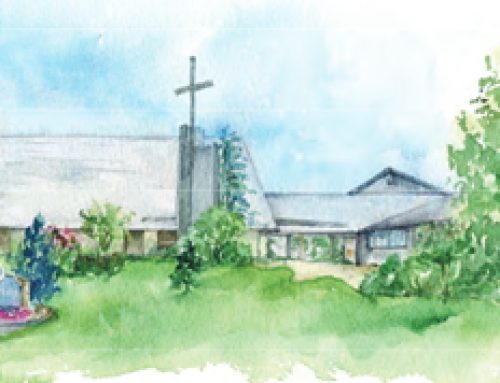FROM THE PASTOR’S DESK
My Dear Parishioners,
In today’s Gospel we encounter the parable of the Good Samaritan as Christ responds to the question, “who is my neighbor?” This parable reminds us that we are to imitate Christ’s mercy, but the texts call for a much more radical care than we might realize. The priest and the Levite who pass by on the far side of the road do so to preserve their ritual purity so that they might continue to serve in temple. Meanwhile, the Samaritan tends to the man with great generosity. The rest of the Jewish people considered the Samaritans to be heretics and treated them as outsiders. Their religious practices were different, and they had built their own temple to worship God outside of Jerusalem, which rejected the covenant God made with David. The Samaritans and the Jewish people had fought wars with each other over these things. But the fact that this outsider, who worshiped God incorrectly, acted correctly in Christ’s eyes, would have been shocking then and should be today: Christ is teaching us that mercy is the heart of God’s law.
This parable, however, has more than one layer to it. The Church Fathers and ancient tradition understood that in this parable the man who has been beaten and robbed is not just any man, it is every man. The man is a symbol of humanity, which has fallen prey to the forces of Sin and Death, which has been robbed of its dignity when he fell into sin through the deception of Satan, our ancient enemy. The priest and the Levite are symbols of the Old Covenant, which are good but have not saved us. The Samaritan, though, is a type of Christ. Christ, God born as man, comes to this world as an outsider. He was accused of false teaching and false worship. And yet, like the Samaritan, he heals us. Just as the Samaritan cleans and bandages the man’s wounds, Christ heals our broken humanity, even though this means that he had to descend from Haven and become one of us. Then, Christ brings us to the inn, which stands for the Church and her ministers. The two coins have been understood as many different things. St. Ambrose says they are the two Testaments of the Bible. St. Augustine says they are the two precepts of love (of God and of neighbor). St. Irenaeus sees the coins as the image of the Father and the Son, entrusted to the innkeeper who is the Holy Spirit. Finally, the Samaritan promises to return one day, just as Christ has.
We see in this parable how God has chosen to save humanity, and the Gospel today ends with Christ saying, “Go and do likewise.” Christ is calling us, in this parable not simply to be merciful, but to be merciful as God is merciful. God came down to save us and have mercy on us, even though we turned away from him. He desires us to show that same mercy to those around us.
This parable is in response to the question, “Who is my neighbor?” But that isn’t the first question we heard. “Teacher, what must I do to inherit eternal life?” The answer, we know, is, “You shall love the Lord, your God, with all your heart, with all your being, with all your strength, and with all your mind, and your neighbor as yourself.” With this introduction, we can understand the parable as teaching us how to attain eternal life and how to live out God’s law. Because if we desire to attain eternal life, we must love God with our entire self. If we love God with our entire self, we will not hesitate to imitate Him in showing mercy, no matter where they are from, no matter what they look like, and no matter what they might have done to us, because we will recognize that God loves them just like He loves us.
Peace,
Fr. Monteleone
To read the complete bulletin click here



